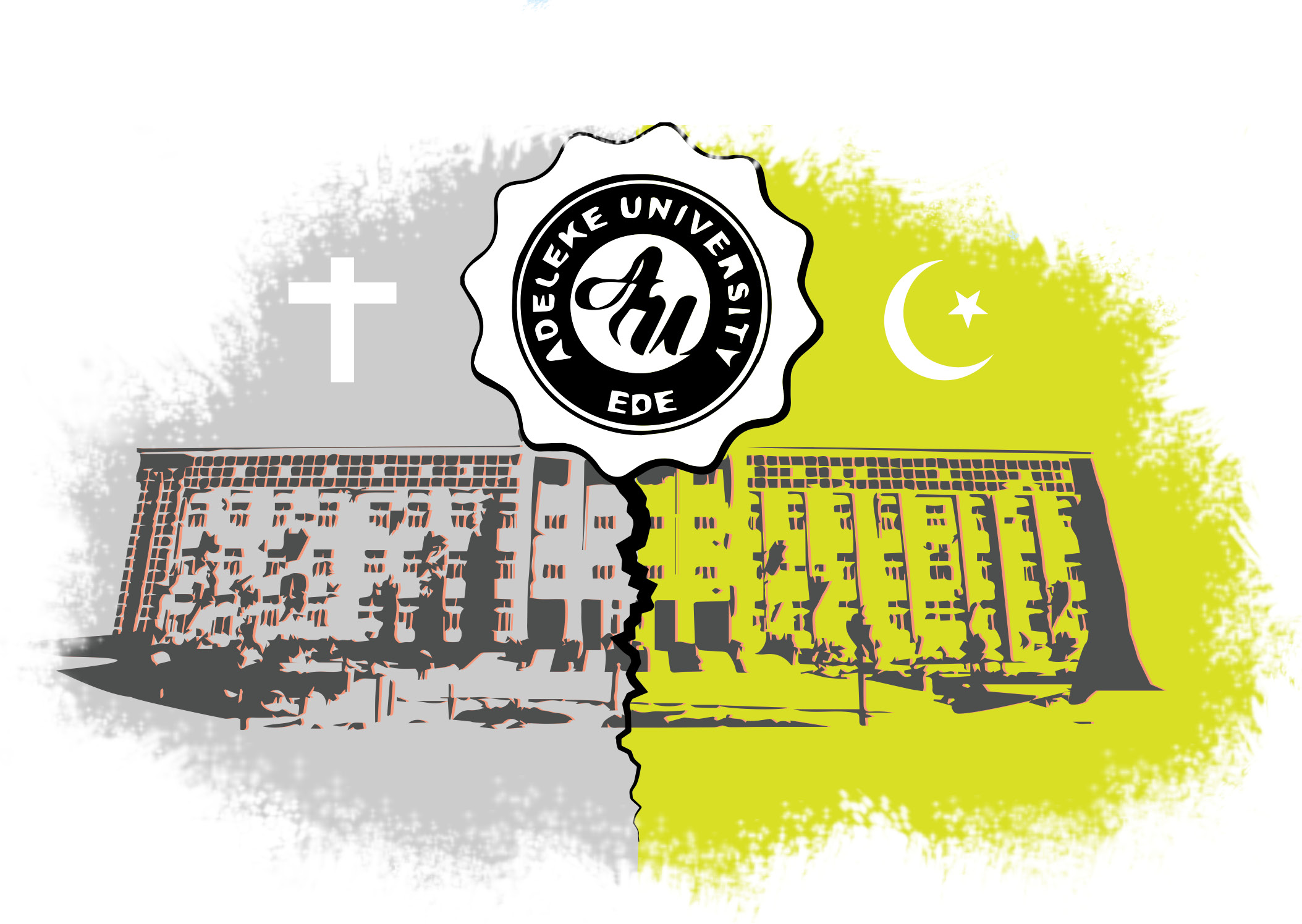Bigotry in Adeleke University
The Muslim Rights Concern (MURIC) has accused Adeleke University, Ede, Osun State, of persecuting Muslim students in the institution. This was contained in a statement recently issued by the Director of MURIC, Professor Ishaq Akintola. He said Adeleke University is a serial violator of Allah-given fundamental rights of Muslim students because the institution forces Muslim […]

The Muslim Rights Concern (MURIC) has accused Adeleke University, Ede, Osun State, of persecuting Muslim students in the institution. This was contained in a statement recently issued by the Director of MURIC, Professor Ishaq Akintola. He said Adeleke University is a serial violator of Allah-given fundamental rights of Muslim students because the institution forces Muslim students to attend church on Sundays. “It makes it mandatory for students living in the hostel to attend church every Wednesday and Saturday”, the statement added.
Akintola also said “The practice of any other faith on campus except Christianity is banned. Muslim students must not be seen observing Salat. Hijab is a taboo in Adeleke University. Yet all these Islamophobic practices are smartly hidden from prospective students of the institution until they have paid the exorbitant school fees and can no longer withdraw.” MURIC therefore called on the National Universities Commission (NUC) to come to the rescue of Muslim students in Adeleke University.
MURIC further invites NUC to take a look at the students’ handbook of this institution, especially pages 7, 49, 50, 56 and 60. These pages, according to Akintola, contain rules that infringe on the religious freedom of Muslim students. As a regulating body, NUC has a duty to intervene in this matter as part of its oversight function on Nigerian universities; adding that “As things stand today, Muslim students of Adeleke University have been deprived of the spiritual component of their humanity. We therefore call on NUC to investigate this issue as a matter of urgency. Religious repression is a potential threat to peace, law and order”.
Cautioning the Nigerian Muslim community on the intolerance that exists in a few other private universities, MURIC has advised Muslim parents and students to take necessary precautions. They should investigate very well before picking universities of interest. “Many private universities do not bear Christian names but they pursue Christian evangelical goals. Worse still, they lack the spirit of tolerance. Muslim candidates who have already chosen private universities where they are likely to become victims of Islamophobia are, therefore, advised to apply for a change of university before it is too late”, Akintola said.
Founded by Ishaq Akintola, MURIC is a Non-Governmental Organization (NGO) concerned with the rights, challenges and predicaments of Muslims all over the world including to the plight of Muslims in Nigeria. Akintola is a Professor of Islamic Studies with specialization in Islamic Eschatology, which is the branch of theology that has to do with death, judgement and the final destiny of the soul and of humankind. Asserting MURIC’s core functions, Akintola has repeatedly said “We remain oppressed until the Hungry are fed, the sick healed, the naked clothed, and the homeless sheltered. We will not let up in this intellectual and non-violent jihad”; adding that “We will seek freedom of worship for all, emancipation of the oppressed and justice for the persecuted”. ‘Dialogue, Not violence’ is MURIC’s avowed slogan.
People of different religious or cultural background tend to hate each other because they are, perhaps, ignorant of how God has united them in diversity with a lot of commonalities between them. Religious intolerance could generally be attributed to ignorance. Intolerance is often passed down from one generation to another when, for example, character moulders including parents and teachers are not aware that they are intolerant. To achieve tolerance, individuals need to acquire not just the basic knowledge of their religion; they equally need to have better understanding of the religion practiced by others.
Religious bigotry is simply defined as intolerance of another’s religious beliefs or practices or lack thereof. Intolerance becomes worse if persons who lack basic knowledge of their own religion are also ignorant of the religious rights of others including their right to believe in and practice the religion of their choice. People with such ‘selective’ knowledge or ignorance tend to see only what they want to see; with a tendency to misrepresent truth in the weirdest manner. They unconsciously remain prejudiced in their interaction, judgement or appreciation of followers of other religions. This idiosyncrasy is typical of any individual or group that exhibits intolerance as displayed by the management of Adeleke University.
It is assumed that university administrators are enlightened individuals with essential knowledge of citizens’ fundamental rights as enshrined in the country’s constitution. It sounds very strange that a matter as divisive as bigotry would be encouraged in Adeleke University by those who, given their academic prominence and leadership responsibility, should have risen above sentiments of all kinds. University should be the last place where citizens’ religious rights are usurped.
Some of the immediate consequences of religious bigotry or intolerance include mutual mistrust, anxiety and the building up of tension. Bigotry, when not dealt with at once, leads to conflicts that are most often violent. Most religious crises of the past especially in northern Nigeria were fuelled by bigotry. This is why it is important, as already suggested by Professor Akintola, for the NUC to quickly investigate the allegations of bigotry brought against Adeleke University. This is to forestall any breach of the peace in the university community and beyond it. May Allah (SWT) liberate the minds of Nigerians, within and outside of university communities, from the clutches of ignorance, fanaticism, and small mindedness, amin.
